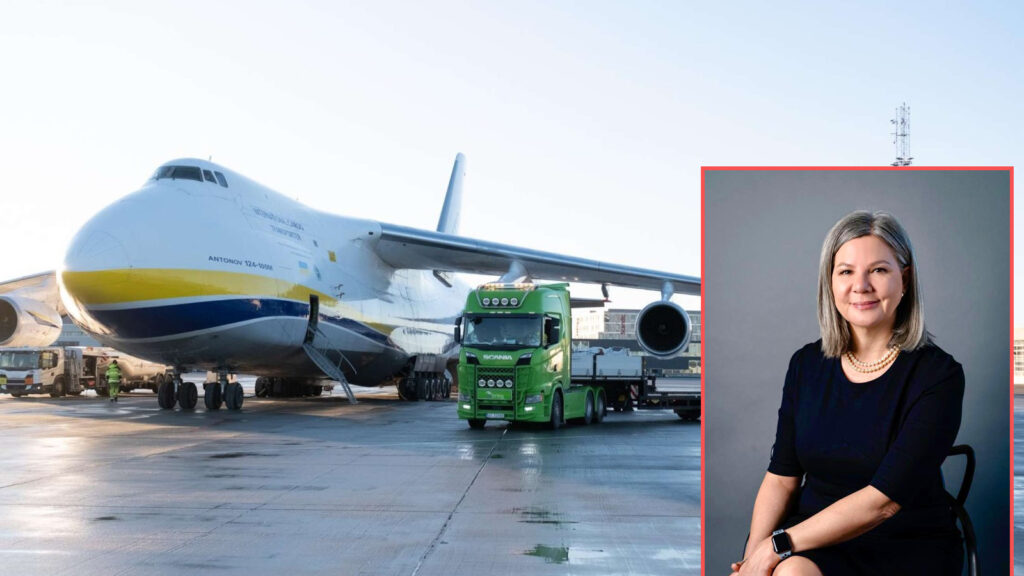Air cargo or air freight, which allows the transport of goods quickly by air, is a major trade enabler and could potentially be a key driver of SA’s economic recovery.
This is part of the reason why Wesgro, the official trade and investment promotion agency for Cape Town and the Western Cape, is placing great emphasis on unlocking the full potential of the air cargo industry.
The global economy depends on the ability to deliver products at competitive prices to consumers, and air cargo offers a fast and generally reliable method of moving goods around the world. It plays a critical role in the development of agile and resilient supply chains. Air cargo transports over $6 trillion worth of goods, accounting for approximately 35% of world trade by value, according to the International Air Transport Association (IATA), the trade association of the world’s airlines. It previously estimated that a 1% improvement in a countries’ air cargo connectivity leads to a 6% increase in trade.
Furthermore, countries that have well developed air cargo connections combined with good quality customs services and smart borders, are better at integrating into global value chains—which can accelerate economic growth.
This suggests that we should be pulling out all the stops to boost the air cargo industry and ensure that our exporters and importers have more viable options to move their high value goods quickly and efficiently. This is particularly crucial given some of the operational challenges at our ports, which threaten to cripple key sectors of the economy such as agriculture and mining.
In SA and indeed across the continent, air cargo hasn’t taken off or hit new heights in part due to the relatively high costs of moving goods by air making it unaffordable for many local businesses—moving goods via air is at least five times more expensive on average compared to sea freight.
Poor infrastructure, including inadequate cargo handling facilities and outdated technology which can result in delays and higher costs for businesses, is another major factor hampering the growth of the local air cargo sector. Similarly, red tape and regulatory hurdles have also curtailed industry expansion.
Removing the hurdles
To improve air cargo efficiency, we need to invest in the necessary infrastructure. This includes improving airport facilities, expanding cargo terminals, and upgrading air traffic control systems. These improvements will help to increase the efficiency and capacity of air cargo transportation, and potentially lower costs down the line as more players enter the market.
We must move quickly to remove the complex and time-consuming regulatory processes, which can make it easier and more cost-effective for businesses to use air cargo.
We need to encourage more competition to improve efficiency and drive down prices. The government can do this by creating a more favourable regulatory environment for new entrants to the market—a more open skies policy, so to speak.
SA, which is widely regarded as the gateway into Africa because of its relatively well-developed economic infrastructure and manufacturing capacity, could benefit greatly from the liberalisation of African skies.
The liberalisation of African skies refers to the opening of air transport markets across the continent, allowing airlines to operate freely and without restrictions. This could result in increased competition, lower airfares, and increased trade between countries.
In 1999, African ministers responsible for civil aviation adopted the “Yamoussoukro Decision”, named after the Ivorian capital city in which it was agreed, committing signatory countries to deregulate air services and to promote competition within regional air markets.
However, the implementation of the agreement, now broadly known as the Single African Air Transport Market (SAATM) initiative, has generally been slow and limited. The full implementation of the initiative must be prioritised. Doing so is also vital for the African Continental Free Trade Area (AfCFTA), the continent’s single biggest trading bloc, to reach its full potential.
In the US and the EU, the air cargo industry has been a key driver of economic development. This is partly due to the liberal open skies policies which they have adopted in recent years, allowing for more open competition and market access. This has led to a more dynamic and competitive air cargo industry, which has helped drive down costs and improve service quality.

Furthermore, the US and the EU have built and expanded their airports, improved air traffic control systems, upgraded cargo handling facilities and invested heavily in new technology—increasing capacity and efficiency in air cargo transportation, making it more attractive to shippers and freight forwarders.
Partnerships
Soufiane Daher, an air cargo advisor, highlights here that airports that effectively manage their cargo investments have created the right environment for cargo operators to maximise their potential. Availability of ground handling capacity and quality of infrastructure—including for special cargo handling, are important factors for airlines in managing their networks. Over and above that, Daher states, the success of a cargo hub relies on a large number of stakeholders operating together—including (but not limited to) shippers, freight forwarders, ground handlers, truckers, customs, airlines, integrators, regulators and airports.
To promote air cargo transportation, we need to move quickly to address existing challenges through policy and infrastructure improvements to make air freight more efficient and cost-effective. Moreover, we need a thriving air cargo ecosystem to take advantage of the growing demand for e-commerce. Online shopping is on the rise globally, and this has created a need for faster and more efficient cargo transportation. Air cargo can provide the speed and reliability needed to support e-commerce, making it a key component of SA’s trade infrastructure.
Additionally, an accessible and efficient air cargo industry can potentially make it easier for us to strengthen trade ties and improve access to key markets such as those in Europe, America, and Asia. A robust and accessible air cargo industry is also necessary for us to capitalise on our weak currency to boost exports. A weaker rand typically benefits manufacturers and local producers by making exports cheaper.
Potential
SA already has several advantages that make it an appealing destination and hub for air cargo in Africa. It has a relatively well-developed transportation network, including several airports with direct flights to key destinations around the world—for example Cape Town International Airport already offers direct connectivity to three major hubs including New York, Washington DC and Atlanta.
At Wesgro, we have put the air cargo industry front of mind as we work to ramp up investment and trade by positioning Cape Town and the Western Cape as an international gateway.
In March, Wesgro hosted the Western Cape Air Cargo Conference which brought together key stakeholders in the logistics value chain including freight forwarders, exporters and shippers. Many of the industry stakeholders emphasised the need to improve infrastructure at our airports and to cut red tape to help drive faster and efficient movement of goods.
Every speaker reinforced the message that for SA to realise its full economic potential, we need to make it as easy as possible to trade and to move our goods—highlighting that trade is the lifeblood of the economy, providing the goods and services that fuel growth and innovation.
We need to act quickly to accelerate the development of a sustainable air cargo ecosystem and lift economic growth. A bigger, much more efficient, and accessible air freight and logistics network can be a valuable lifeline for our economy.
Stander is the CEO of tourism, trade and investment promotion agency Wesgro.







